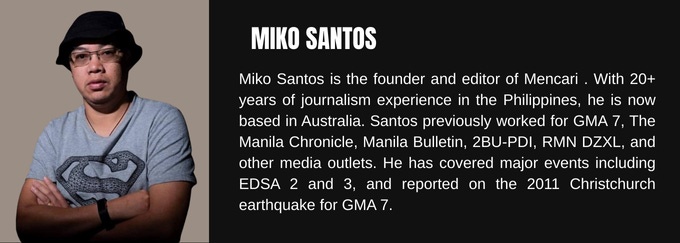Government Launches Economic Reform Roundtable as Officials Push Productivity Agenda
Today’s email is brought to you by Empower your podcasting vision with a suite of creative solutions at your fingertips.
The federal government opened a three-day economic reform roundtable Tuesday with calls for concrete policy solutions and consensus-building, as officials outlined ambitious plans to boost productivity and address key economic challenges facing Australia.
Treasurer Jim Chalmers addressed roundtable participants with what he described as a "call to arms," demanding specific proposals with clear funding mechanisms to emerge from the discussions.
"To make the most of this opportunity, we need your concrete ideas. We need you to be specific. We need you to suggest ways to pay for them so that good ideas are also affordable ideas," Chalmers told attendees.
Reserve Bank Governor Michelle Bullock delivered an opening presentation that Finance Minister Katy Gallagher described as "optimistic," focusing on the Australian economy's resilience despite ongoing challenges.
"She kind of gave a scene-setting presentation in a sense, where the bank was, what it was thinking, and really, I thought, gave quite an optimistic presentation about, you know, acknowledging some of the challenges and things that are being thrown at us, but at the resilience and capacity of the Australian economy," Gallagher said during an ABC interview Tuesday afternoon.
Skills Recognition Emerges as Priority
The roundtable identified skills and training reform as a central focus area, with Australian Industry Group Chief Executive Innes Willocks highlighting systemic problems in Australia's qualifications recognition process.
Willocks said the current system for recognizing skills and qualifications was "glued up and needed to be simplified," according to Gallagher's account of discussions.
The Finance Minister confirmed that skills recognition, particularly for overseas-qualified workers, represented an area of broad agreement among participants.
"I think it is an area where there is a lot of agreement that perhaps improvements can be made to current processes and systems and should be made," Gallagher said. "I know that things like, you know, recognising occupations across jurisdictions has been something that's been on the agenda for a while but hasn't been able to be progressed, but also recognition of prior learning, recognition of previous skills, even if they're coming, or qualifications from overseas."
She cited health sector reforms as an example, referencing reviews showing lengthy delays in registering overseas-trained doctors compared to other countries.
Road User Charges Gain State Support
New South Wales Treasurer Daniel Mookhey used the roundtable to advocate for progress on road user charging, representing state and territory treasurers in pushing for tax reform measures.
Mookhey argued "it was time to get some agreement to move forward on a road user vehicle charge, so everyone who uses the road makes a contribution through tax," according to Gallagher's summary of his remarks.
The Finance Minister indicated significant cross-jurisdictional support for examining road user charging mechanisms.
"I think there is a lot of agreement across jurisdictions about the fact that we need to be seriously looking at this and looking at what road user charging or something similar might look like," Gallagher said. "How we actually provide infrastructure funding for our extensive road system, which is so important to the productivity of the economy, is something that this roundtable should be looking at carefully."
AI Regulation Debate Continues
Artificial intelligence emerged as another contentious discussion point, with the government facing pressure from various stakeholders advocating different regulatory approaches.
Gallagher acknowledged the broad spectrum of opinion on AI regulation, noting some participants want "very tightly regulated" oversight while others prefer "light touch regulation" or believe existing legislation already accommodates new technologies.
Ministers Ed Ayres and Andrew Charlton have been leading government work on AI policy ahead of the roundtable discussions.
"I think we can demonstrate a bit about where we are within our own public service, but also how we manage it across the whole economy, which is a bigger issue and, you know, as you say, has mixed views about how that will operate," Gallagher said.
Truth matters. Quality journalism costs.
Your subscription to Mencari directly funds the investigative reporting our democracy needs. For less than a coffee per week, you enable our journalists to uncover stories that powerful interests would rather keep hidden. There is no corporate influence involved. No compromises. Just honest journalism when we need it most.
Not ready to be paid subscribe, but appreciate the newsletter ? Grab us a beer or snag the exclusive ad spot at the top of next week's newsletter.
Opposition Challenges Government Approach
Shadow Treasurer Ted O'Brien opened the day with sharp criticism of the government's timeline and approach to economic reform.
"I see my role as representing the 27 million Australians who have been struggling under this Albanese government," O'Brien said. "I will of course be constructive where I can and critical where I must. It's taken the government three years to acknowledge the problem, three months to organise a three-day discussion. Complacency I think is a real issue."
Opposition Leader Susan Lee dismissed the roundtable as pre-orchestrated, saying participants needed to focus on practical business concerns rather than government messaging.
"The important point for us is we're out here where the boots are, not where the suits are," Lee said. "And we know that what happens behind those closed doors is already carefully choreographed, carefully worked out with announcements to come."
Prime Minister Defends Economic Record
Prime Minister Anthony Albanese appeared to reference criticism of Reserve Bank policy during his opening remarks, defending the government's approach to managing inflation without significant unemployment increases.
"There are some economists, perhaps some in this room, who thought that you couldn't get inflation down without getting unemployment up," Albanese said. "Well, that's not my government's way. My government is focused on looking after people on the economic journey."
Gallagher downplayed suggestions the comments represented criticism of Governor Bullock, emphasizing the bank's dual mandate for inflation control and employment.
"I certainly didn't take it that way, and I don't think anyone in the room did," Gallagher said. "In fact, the governor spoke about their dual mandate to keep inflation in the band and to work towards full employment."
Public Skepticism on Productivity Gains
The government faces public skepticism about productivity reform benefits, with YouGov polling showing 65 percent of Australians believe productivity improvements primarily benefit employers rather than workers.
Gallagher acknowledged concerns about equitable distribution of productivity gains, referencing Australian Council of Trade Unions views that recent decades have seen uneven sharing of economic benefits.
"A view put by the ACTU is that, you know, a view put by the ACTU is that in the last couple of decades, there's a feeling that those gains haven't been equally shared," Gallagher said. "So things like getting wages moving again, getting that balance right on industrial relations has been part of the work we've been putting in place to make sure that the gains from any productivity improvements are fairly shared across the economy."
Cabinet Process for Implementation
The Finance Minister outlined how Cabinet would engage with roundtable outcomes, noting extensive preliminary work including more than 900 submissions and 40 regional roundtables leading to the national event.
"I would imagine there will be a piece of work that comes out of it that would need to return through our Cabinet processes, that is, go back through a submission for further agreement," Gallagher said. "But there may be things that we can do outside of that as well."
Chalmers indicated plans to develop a "statement of intent" capturing agreed outcomes from the three-day discussions.
Australia-Israel Diplomatic Tensions
Tuesday's discussions occurred against the backdrop of escalating diplomatic tensions with Israel, following the cancellation of visas for Australian diplomats in response to Australia's decision to cancel an Israeli parliamentarian's visa.
Gallagher defended the visa cancellation as a departmental decision based on character grounds, saying visas would be cancelled for individuals appearing to "stir" or "disrupt" social cohesion.
"That was a decision taken by the department on character grounds," Gallagher said. "Visas will be cancelled if it looks like you're coming here to stir, so you know, to try to, you know, I guess disrupt and take away from some of the social cohesion which we know already is under pressure."
The Finance Minister expressed regret over Israel's reciprocal action against Australian diplomatic staff, emphasizing the importance of maintaining dialogue despite policy disagreements.
"We do regret that and we think that dialogue and opportunities for diplomacy and close discussion is really important particularly in an area like the Middle East at the moment," Gallagher said.
She rejected suggestions the relationship was "broken," arguing Australia must maintain independent policy positions while preserving diplomatic channels.
"Australia has to be able to have positions that, you know, on matters about other countries or, in this case, recognition of a Palestinian state and still maintain relationships with other countries," Gallagher said. "We're not going to agree on everything."
The roundtable continues through Thursday, with government officials promising further detail on policy outcomes as discussions progress across multiple economic reform areas.
Got a News Tip?
Contact our editor via Proton Mail encrypted, X Direct Message, LinkedIn, or email. You can securely message him on Signal by using his username, Miko Santos.
Sustaining Mencari Requires Your Support
Independent journalism costs money. Help us continue delivering in-depth investigations and unfiltered commentary on the world's real stories. Your financial contribution enables thorough investigative work and thoughtful analysis, all supported by a dedicated community committed to accuracy and transparency.
Subscribe today to unlock our full archive of investigative reporting and fearless analysis. Subscribing to independent media outlets represents more than just information consumption—it embodies a commitment to factual reporting.
As well as knowing you’re keeping Mencari (Australia) alive, you’ll also get:
Get breaking news AS IT HAPPENS - Gain instant access to our real-time coverage and analysis when major stories break, keeping you ahead of the curve
Unlock our COMPLETE content library - Enjoy unlimited access to every newsletter, podcast episode, and exclusive archive—all seamlessly available in your favorite podcast apps.
Join the conversation that matters - Be part of our vibrant community with full commenting privileges on all content, directly supporting The Evening Post (Australia)
Catch up on some of Mencari’s recent stories:
It only takes a minute to help us investigate fearlessly and expose lies and wrongdoing to hold power accountable. Thanks!








